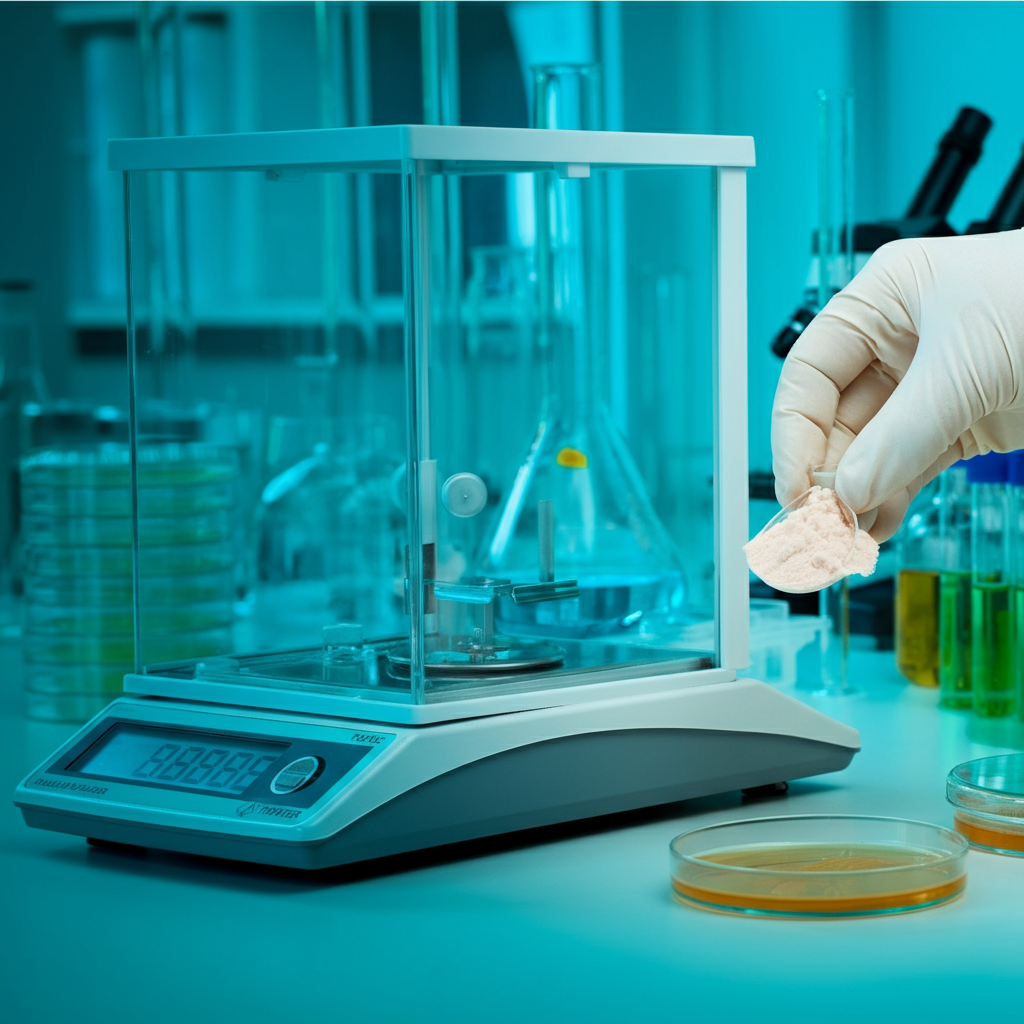Microbiology involves the study of microscopic life forms like bacteria, viruses, and fungi, requiring extreme precision in every step of the research process. Among the essential tools in this field, the analytical balance plays a crucial role in ensuring accurate measurements and reliable results. Understanding its function in microbiology highlights why this equipment is indispensable for scientific advancements.

What Is an Analytical Balance?
An analytical balance is a high-precision instrument designed to measure very small mass changes with extraordinary accuracy. These balances are part of standard laboratory equipment in microbiology and other scientific fields, known for their ability to detect weight variations down to microgram levels. This precision is essential for handling small quantities of substances in microbial research.
Critical Functions of Analytical Balances in Microbiology
Analytical balances contribute significantly to various aspects of microbiology. Here’s how they enhance precision and reliability in the lab:
-
Weighing Culture Media
Accurate preparation of culture media is essential for microbial growth and study. Analytical balances ensure precise measurements of powdered components like peptone and agar for reproducible results. -
Formulating Solutions
When creating solutions for staining or biochemical assays, even the slightest measurement error can lead to inconsistent results. Analytical balances ensure exact quantities are used. -
Sample Preparation
Handling minute quantities of microbial samples requires sensitive tools. Analytical balances enable the precise weighing of bacteria, fungi, or viral cultures for downstream applications. -
Standardization of Experiments
Reproducibility is the backbone of scientific research. By using an analytical balance, researchers achieve a high level of standardization in their experiments. -
Dilution Accuracy
Microbiologists often work with serial dilutions for quantifying bacteria or viruses. Analytical balances assist in weighing solutes accurately to ensure proper solution concentrations.
Benefits of Analytical Balance in Microbial Research
The integration of analytical balances in microbiology laboratories offers several advantages:
-
Accuracy in Experimentation
Precise measurements minimize variations and improve the reliability of experimental results. -
Consistency in Protocols
Weighing with analytical balances ensures that protocols are followed uniformly, increasing confidence in findings. -
Waste Reduction
The ability to work with minuscule quantities reduces the use of expensive reagents and resources. -
Enhanced Sensitivity
Analytical balances detect weight differences that are imperceptible to standard balances, ideal for trace-level measurements.
Important Features of Analytical Balances for Microbiology
When selecting an analytical balance for microbiology, the following features are crucial for optimal functionality:
-
High Readability
Look for balances with readability in the microgram range for extreme precision. -
Vibration Resistance
Many microbiology labs are prone to vibrations from equipment. Modern balances with anti-vibration technology deliver stable readings. -
Calibrated Systems
Built-in or automatic calibration guarantees continued accuracy, even with frequent usage. -
Compact Design
Laboratory space is often limited, making compact balance designs more suitable for microbiology labs.
Applications of Analytical Balances in Microbiology
Analytical balances are used for a variety of microbiological procedures, such as:
-
Antibiotic Sensitivity Testing
Precise measurement of antibiotic powders ensures accurate concentrations for testing bacterial responses. -
Probiotic Formulation
Weight accuracy is crucial when combining specific bacterial strains during the development of probiotics. -
Clinical Microbiology
Diagnostic laboratories depend on analytical balances for preparing media and reagents used in pathogen identification. -
Industrial Microbiology
Analytical balances facilitate quality control and production monitoring in industries like biotechnology and pharmaceuticals.
Why Every Microbiology Lab Needs an Analytical Balance
The importance of analytical balances in microbiology cannot be overemphasized. Their ability to ensure accuracy and reproducibility significantly affects the reliability of research and diagnostic outcomes. Investing in a high-quality balance not only boosts productivity but also minimizes errors in microbial research.